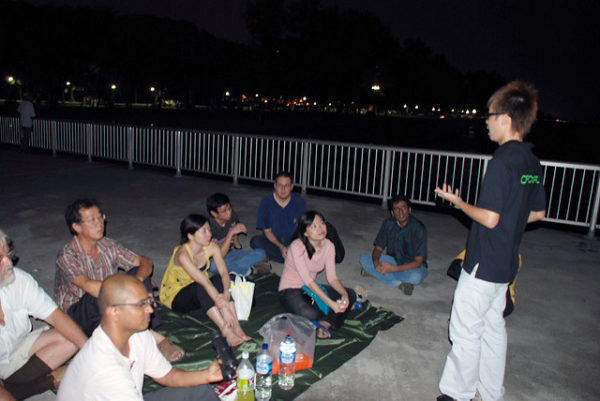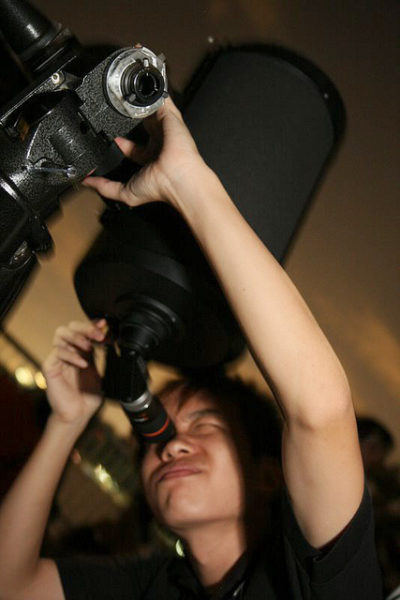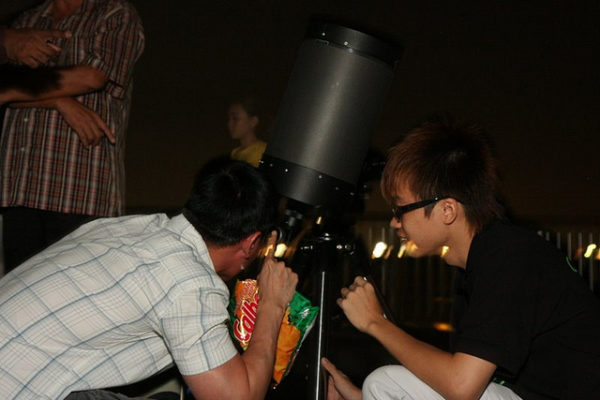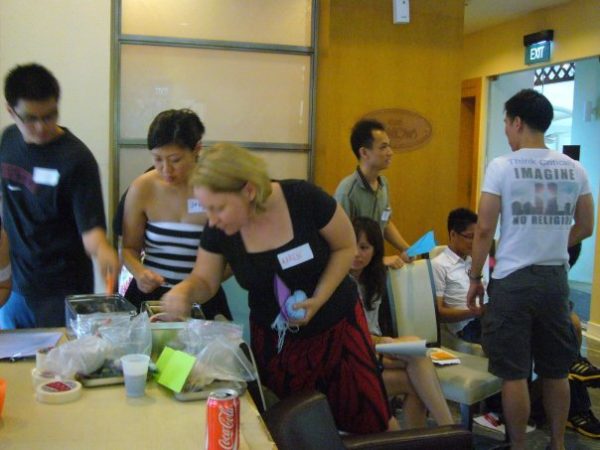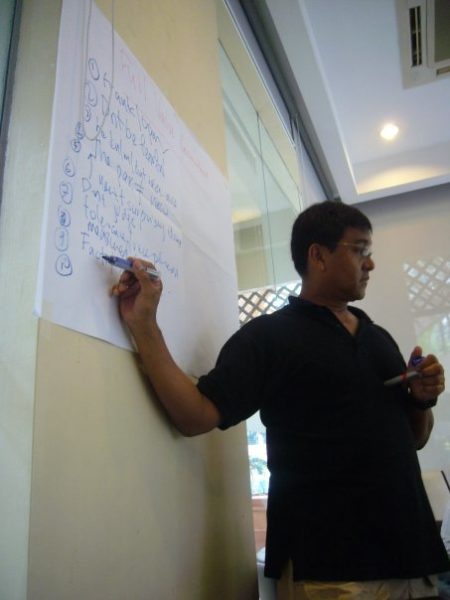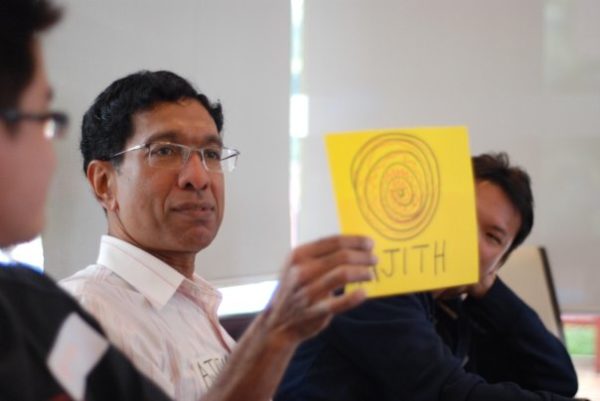
The Singapore Humanism Meetup (SHM) organised its first year-end gathering on 19th December 2009.
It is the festive season and Singapore Humanists join in the cheer by celebrating our first anniversary with a special theme – exploring the ethics of dating and sexuality without religious dogma.
Dating and sexuality is a central issue to humanity and almost all life on Earth, for evolutionary outcomes depends almost entirely on it. Thus, as civilizations and cultures evolved over millennia, it is not surprising that people had set various moral guidelines to regulate sexual and dating behavior.
Ranging from diverse tribal practices to elaborate religious dogma, these moral codes had evolved under different socioeconomic backgrounds, and survived well into the modern era today. However, as scientific research started to shed light into the origin, purpose and nature of our sexual impulses, more people began to challenge the traditional perceptions of dating and sexual behavior.
Different opinions over the nature of sexuality, and how to regulate it, make dating and sexuality universal hot topic. For Singapore, homosexuality and marital rape has made it to the news and or even parliamentary debates in recent years. Countries like the US are currently engulfed in culture wars and lawsuits over gay rights. To the north in Malaysia, religious tension arose after inter-faith marriages ends in divorce. Would Singapore be potentially vulnerable to these issues?
The Singapore government believes that religion provides a moral compass for many Singaporeans. However, what about the non-religious segment of the population in Singapore, such as atheists, agnostics and humanists etc? They have no holy men to guide them in the finer points of dating and sex. Does this imply a no holds barred approach? How should they navigate the minefields of love and lust? How should they manage relationships with people of faith? This was to be discussed of the Dec 19 SHM gathering.
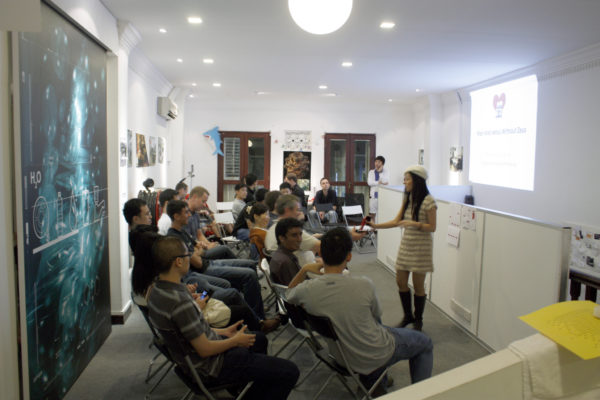
The meetup, attended by about 30 people at Hackerspace in Bugis, started with a screening of a several clips from American drama serials dealing with bisexuality, gay relationships and other dating/sexuality issues. After the clip, the results of an online, anonymous survey conducted by organizers earlier were revealed by co-hosts Benjamin and Mathia. Of the 28 respondents, only two are women and three are gay men, while straight men made up for the rest.
The hosts then started discussing with the audience about the reason behind the skewed response. For example, could the lack of female and gay respondents reflect the societal pressure these two groups face? In addition, the survey revealed that only half of the respondents think that being a straight person is better than being a homosexual, and the hosts discussed if this could be due to the liberal nature of SHM participants.
Throughout the dialogue session after the video clip, there were lively exchanges between certain members of the audience as they debated briefly over the increased acceptance of gays by the Singapore government due to the benefits of the pink dollar, monogamous vs polygamous marriage, negative reporting of homosexuals in the local media etc.
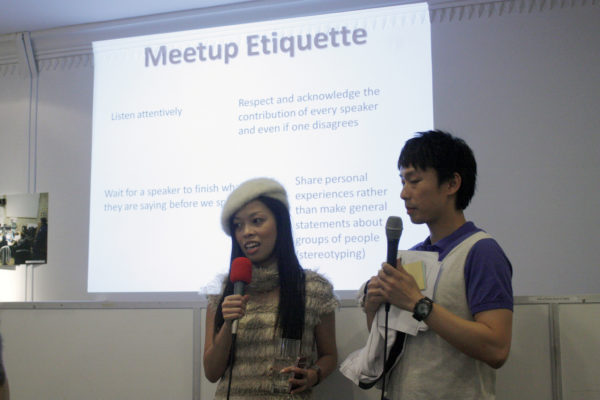
Another hot topic would be inter-faith marriages. Humanists discussed the potential problems of inter-faith marriages, and how would a freethinker go about dating/marrying a person of another religion.
A member suggested that inter-faith marriages would be easier if the two different religions are not so far apart, (eg. Hinduism, Buddhism), while another member suggested that as even Catholics and Protestants have difficulty with inter-faith marriages, the strength of the belief could be more important than the type of belief.
Several members also suggested that informed consensus, by capable consenting adults, could be one guideline for humanists in dating/sexual relationships. The debate then moved on to, at what age, could one could considered a capable, consenting adult, as social and emotional maturity is very subjective. Besides, even between two consenting adults, would the non-religious person always have to give way to the religious person?
After 10pm, the meetup participants began to break up into groups to socialize and discuss. A BBC clip was played, participants enjoyed special drinks from a small bar within the room. In addition, an SHM anniversary video showing the photo slideshows of previous meetups was shown, giving thanks to various people who helped out in the meetups over the past year.
The SHM concludes a successful year with 14 meetups and over 200 members on the mailing list. The organizers hope that more people would come forward to assist in its gatherings, so that it could take further steps to build a genuine, freethought community in Singapore, a socially safe environment where important issues relating to the non-religious could be shared candidly.




